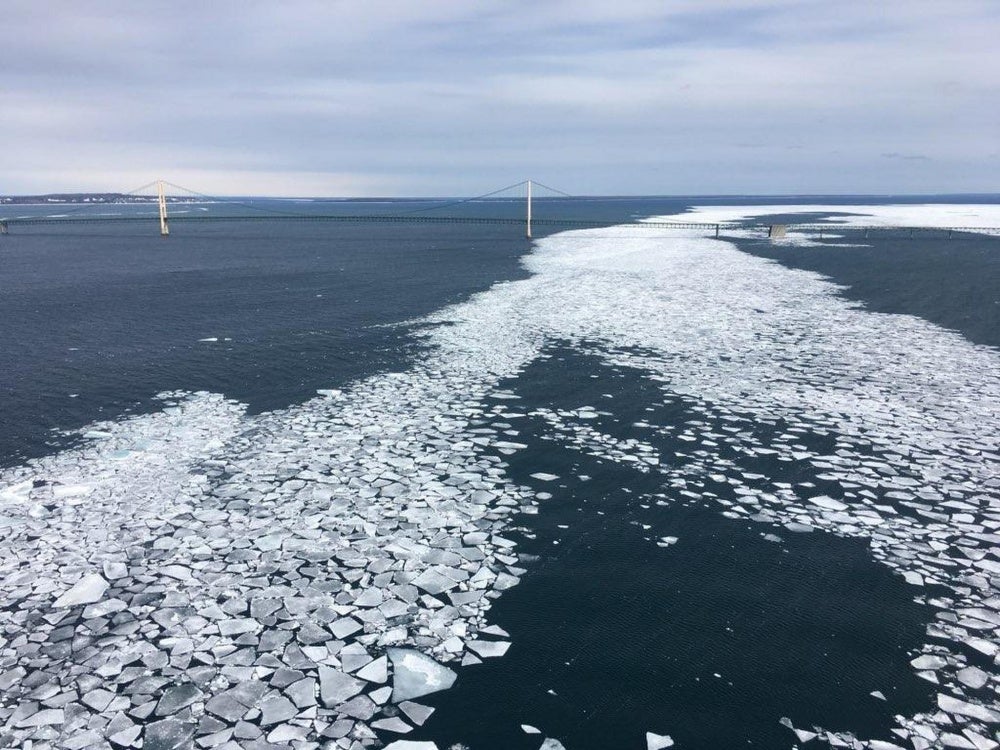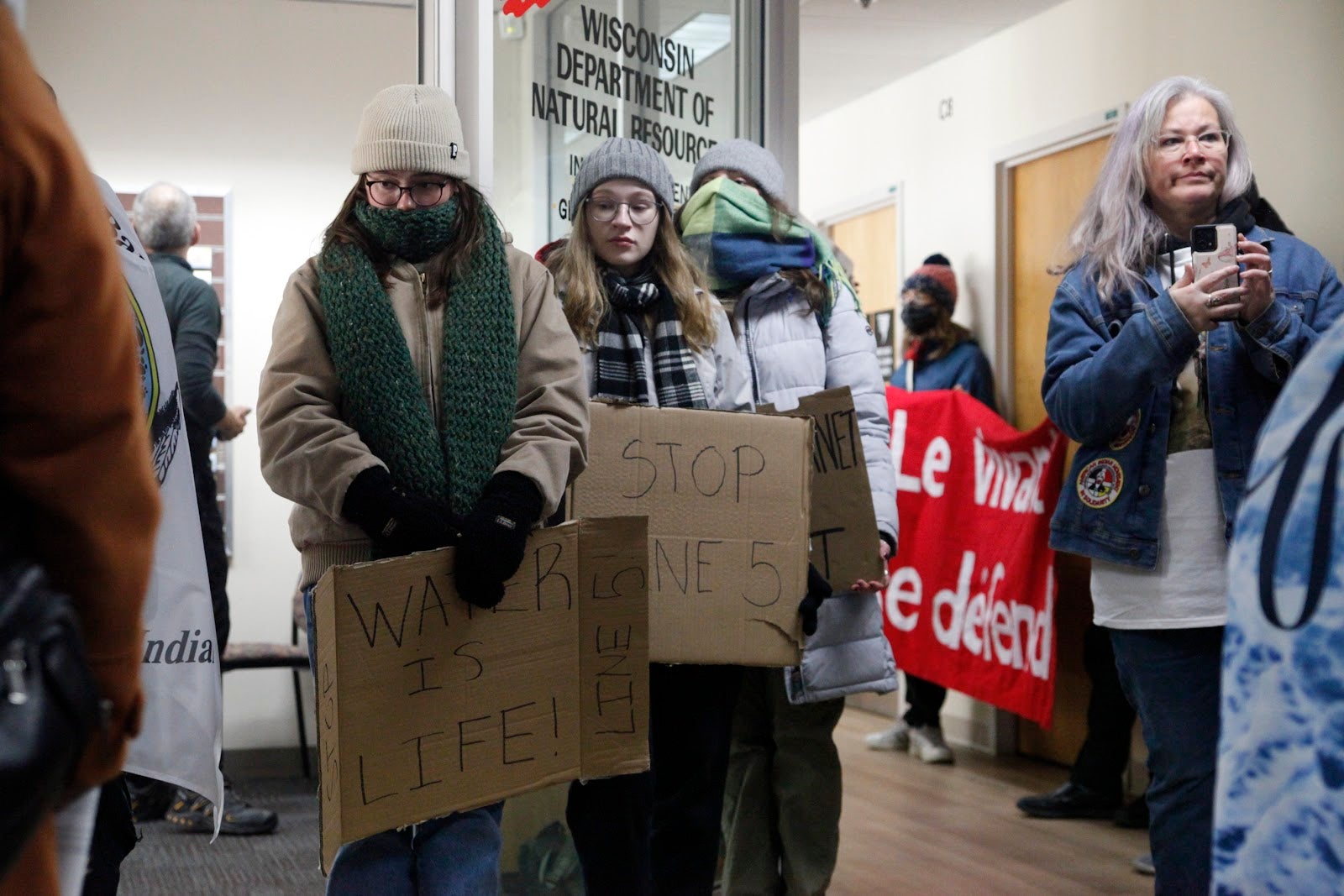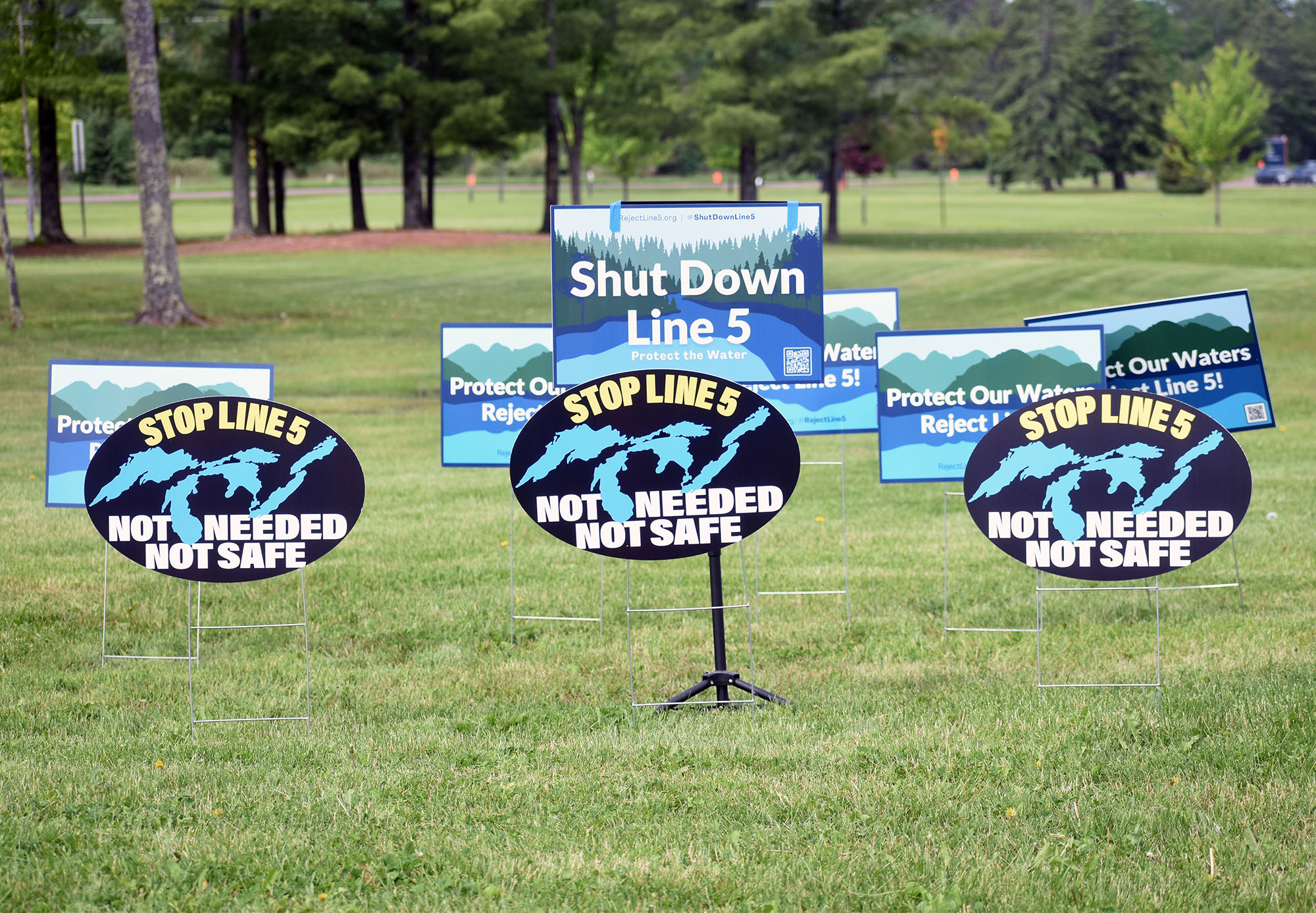A federal judge said this week that he’s unlikely to shut down Enbridge’s Line 5 oil and gas pipeline on the Bad River reservation despite the tribe’s fears erosion from spring flooding may compromise the line’s integrity. Even so, he said a time may come when he’ll have to intervene.
Last week, attorneys for the Bad River Band of Lake Superior Chippewa filed an emergency motion in federal court to shut down Enbridge’s Line 5. They say the spring flooding has worsened erosion along the Bad River’s banks, threatening to expose and rupture the pipeline.
At a hearing Thursday, U.S. District Judge William Conley said the tribe didn’t prove an imminent threat exists to the pipeline. And he expressed frustration over the tribe’s refusal to work with Enbridge to slow erosion on the river.
Stay informed on the latest news
Sign up for WPR’s email newsletter.
“The band has not helped itself by refusing to take any steps to prevent a catastrophic failure at the meander,” Conley said. “You haven’t even allowed simple steps that would have prevented some of this erosion.”
Conley planned to issue a ruling in coming weeks that would set standards for when he would authorize a shutdown of Line 5 on the river. Here’s a breakdown on Line 5, what’s been happening, and what’s yet to be decided regarding its fate.
What is Line 5?
Built in 1953, Line 5 carries up to 23 million gallons of light crude oil and natural gas liquids each day over a 645-mile span from Superior across northern Wisconsin and Michigan to Sarnia, Ontario.
Why does the Bad River tribe want to shut it down?
The Bad River tribe argues Line 5 poses an unreasonable risk to the health and safety of its members, the Bad River Watershed and Lake Superior. Bad River Tribal Chairman Mike Wiggins Jr. said in a press conference following the hearing Thursday that he felt the court mischaracterized the tribe’s actions, saying he feels the pipeline poses an imminent threat of a spill.
“Protecting our lands, our ecosystems, our waters, and our people is at the heart and soul of what we want to do for our people in real time and also all those future generations,” Wiggins said.
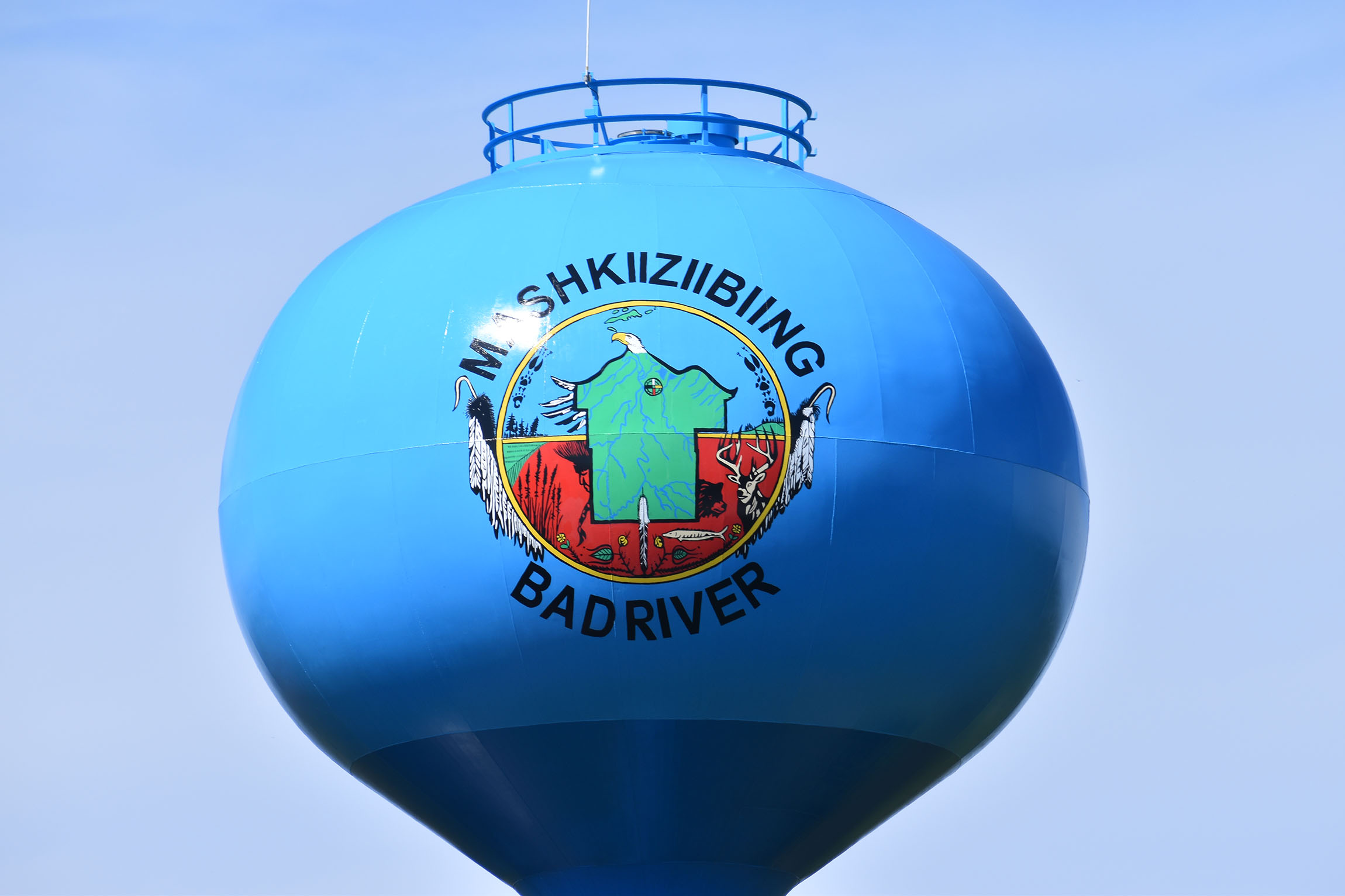
The tribe first filed a federal lawsuit against the company in 2019 to shut down and remove Line 5 from the reservation. That followed the tribe’s refusal to renew easements for the pipeline that had expired in 2013 on a dozen parcels of tribal lands.
In its initial filing, the tribe said the river’s banks were 320 feet from Line 5 in 1963, but erosion had left only 28 feet in 2019. As of this spring, the tribe said erosion of the river’s banks has brought the pipeline within 15 feet in multiple spots and 11 feet in one area at a winding bend in the river, threatening to expose and rupture the pipeline.
What is Enbridge’s response to shutting down Line 5?
Enbridge says the pipeline has been operating safely in the Bad River Watershed despite erosion of the river’s banks. In court filings, the company said there’s less than a 1 percent chance erosion would leave a significant unsupported span of the pipeline before March of next year.
“The exposure of the line won’t lead to a rupture. The evidence that was submitted is that you need a span of 100 feet or more before the pipeline could rupture,” said Paul Eberth, director of U.S. tribal relations for Enbridge. “So just exposure doesn’t necessarily precipitate a rupture and emergency today.”
Eberth said Enbridge is monitoring the pipeline around the clock. If conditions worsened, he said the firm would purge oil from Line 5, which the company has said could take around 40 hours. Enbridge said the Pipeline and Hazardous Materials Safety Administration hasn’t required a shutdown, and the agency plans to conduct a site visit within the next two weeks.
What steps are being taken to slow erosion near Line 5?
Enbridge has proposed placing sandbags along the river where it’s closest to the pipeline, which the company says could be done by the end of May. It has also proposed putting a logjam of trees along the river’s banks to prevent erosion. The company said it’s submitted applications for similar projects that the tribe has denied while two other proposals remain under review.
“The band has permitting authority, and we feel our projects should meet the requirements of their permitting authority,” Eberth said.
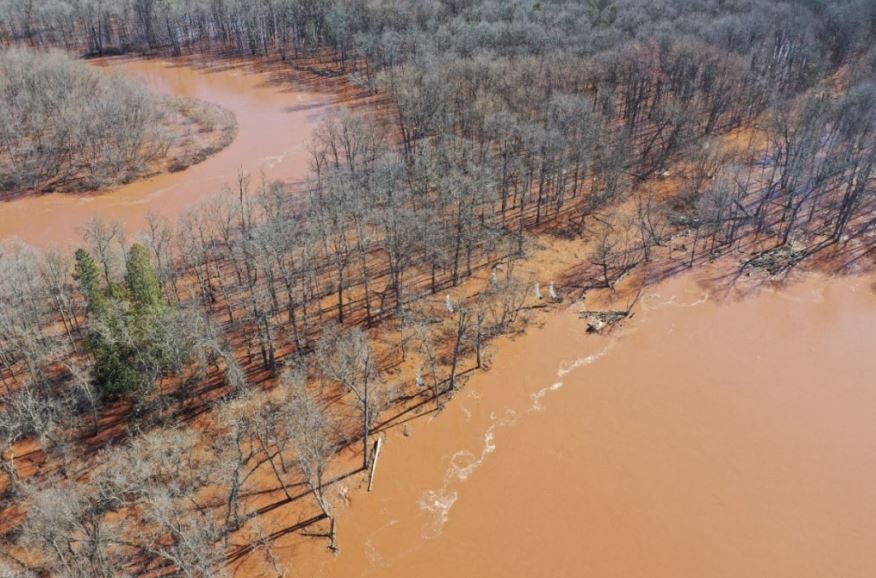
Wiggins said the tribe has its own water quality standards under the Clean Water Act that seek to protect its wild rice waters and drinking water.
“What was kind of put forward (Thursday) was as though none of that stuff should matter. None of that stuff should exist,” Wiggins said. “When Enbridge came knocking, we should have just let them do whatever they wanted.”
Wiggins said projects were reviewed in line with the federal authority granted to the tribe.
Who wants to see Line 5 shut down and who doesn’t?
The tribe, environmental and Indigenous groups, and some surrounding communities like the town of La Pointe on Madeline Island want to see the pipeline shut down. They’ve pointed to the company’s history of spills on land from Line 5 and elsewhere, including a 2010 spill that released more than 843,000 gallons into a nearby creek and Michigan’s Kalamazoo River.
They say a spill would have devastating consequences on Lake Superior and the regional economy.
“Madeline Island is a spiritual homeland for the Ojibwe people. It also is a thriving economy on its own. Even though we only make up less than 3 percent of the population of Ashland County, we’re 20 percent of their tax base,” Town of La Pointe Chair Glenn Carlson said. “They can ill afford to have anything impairing their tax base.”
Republican lawmakers, labor unions and industry groups in Wisconsin say the pipeline serves as a vital energy link to the region.
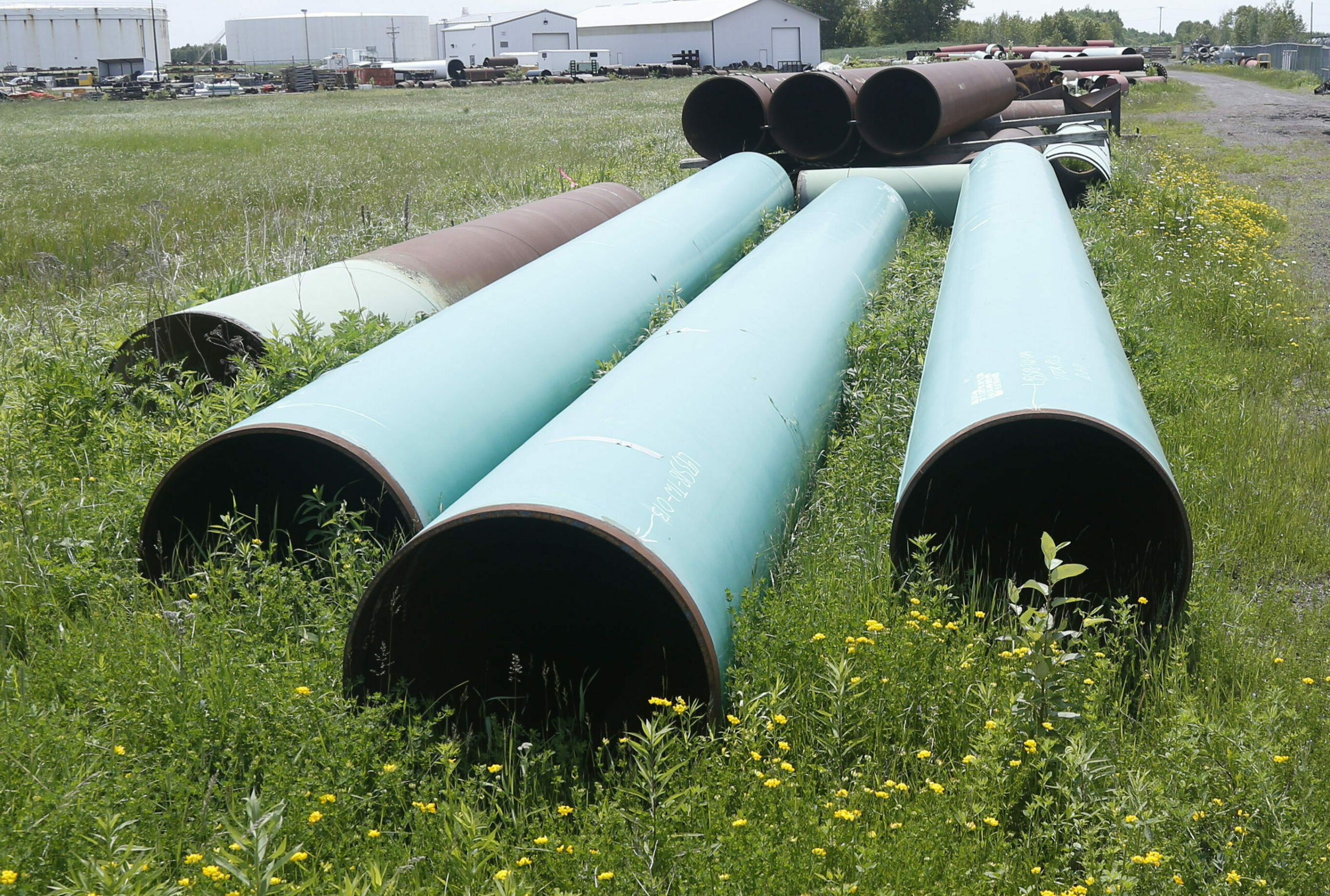
The American Fuel and Petrochemical Manufacturers, American Petroleum Institute, and Liquid Energy Pipeline Association argued in court filings that a shutdown would disrupt fuel supply and lead to price spikes.
“Without Line 5, the Great Lakes region’s refineries would lose a significant source of reliable crude oil, potentially resulting in significant economic consequences,” the groups wrote. “Line 5’s absence would also deprive the region of an important source of propane, which is essential to keep residences warm.”
Enbridge experts have said in court documents that shutting down Line 5 could cost thousands of jobs and billions in economic output in the Upper Midwest, as well as increase fuel costs by an estimated $20 million each year in Wisconsin. The tribe’s experts claim Enbridge is vastly overestimating losses from a shutdown, and its attorneys argue existing rail and pipeline infrastructure could transport oil that currently moves through Line 5.
What legal action may be taken on Line 5?
Last fall, Conley found Enbridge has been trespassing on the tribe’s lands after some of its easements for the pipeline expired in 2013, entitling the tribe to compensation.
Conley has said he’s inclined to require Enbridge to reroute the pipeline outside the tribe’s reservation within five years rather than shutting down the line, citing significant effects on regional economies and the U.S. trade relationship with Canada. On Thursday, he said he would issue a ruling soon that details what conditions must exist for him to order a shutdown.
The tribe’s attorney Riyaz Kanji said they’re hopeful the judge will issue standards that protect the river. He argued that congressional protection exists for tribal lands that would require Enbridge to end its trespass on Bad River Band lands.
“Hopefully, Judge Conley will see that,” Kanji said. “If he doesn’t, we are hopeful and confident that the higher courts will.”
Eberth said Enbridge remains open to negotiating compensation for the time the court has found it’s been trespassing on tribal lands.
What is the status of a proposed reroute of Line 5?
Enbridge has proposed building a $450 million segment of the pipeline in Ashland and Iron counties that would run roughly 41 miles around the tribe’s reservation.
The DNR released its draft environmental review in 2021, but it has yet to issue a final environmental impact statement or issue permits for the Line 5 reroute. Wisconsin Public Radio reported last year that the Environmental Protection Agency found the state had yet to fully analyze its potential effects on water resources, climate change, treaty rights and spill risks. The U.S. Army Corps of Engineers is also reviewing Enbridge’s application for a permit under the Clean Water Act.
Opponents like Sierra Club Wisconsin have said the state should reject permits for the proposed reroute. Supporters have touted the 700 jobs that would be created along with the $135 million economic impact it would have on the state.
Editor’s note: The Associated Press contributed to this report.
Wisconsin Public Radio, © Copyright 2025, Board of Regents of the University of Wisconsin System and Wisconsin Educational Communications Board.

